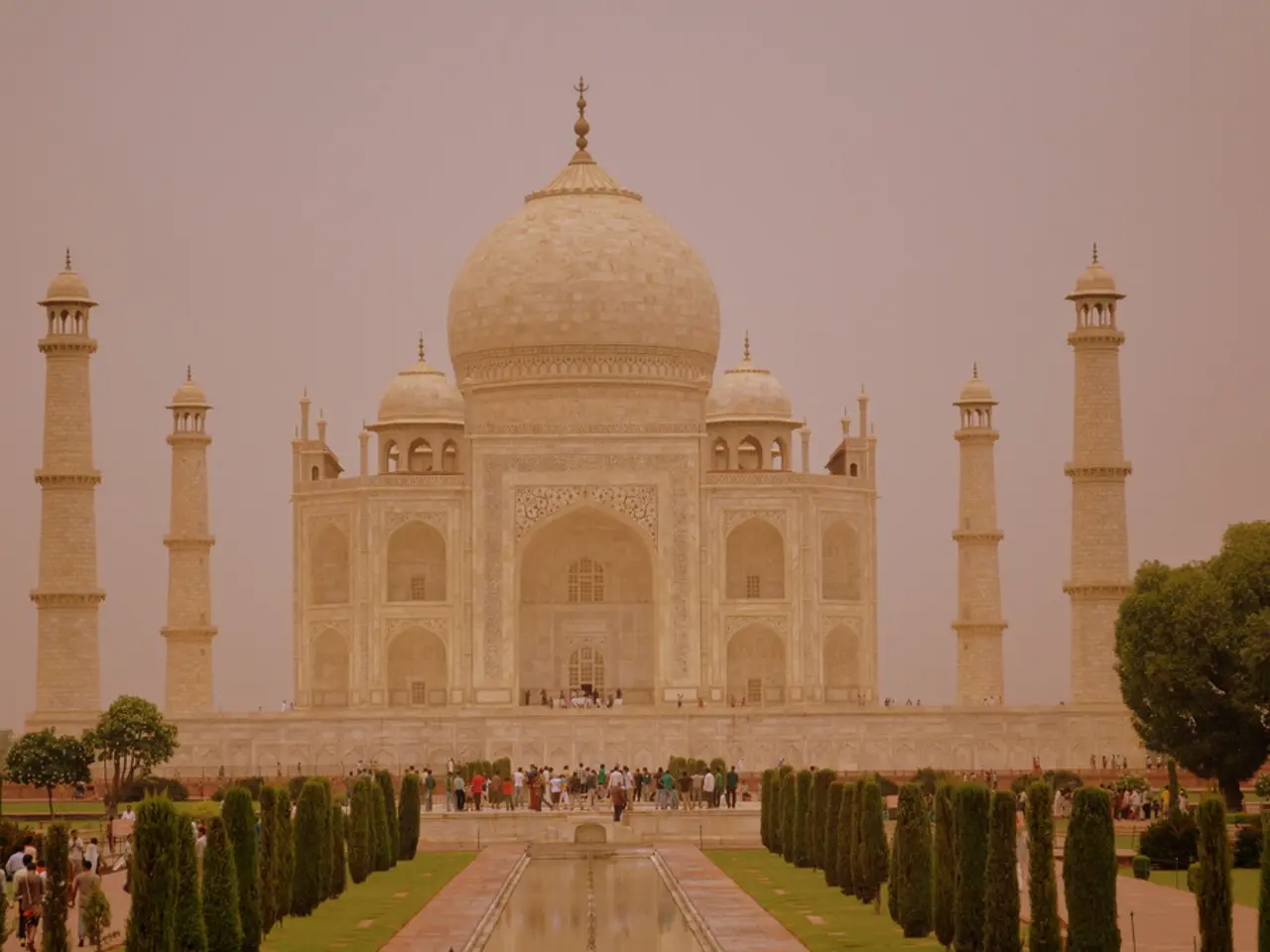Overcrowded Bali, Indonesia, now ranked second globally among the busiest islands, sparks concerns over tourism excess.
In the heart of Indonesia, the island of Bali is grappling with the consequences of its own success. Once named the world's most beautiful island in 2025 by travel agency Travelbag, Bali now finds itself at a critical juncture, facing challenges that threaten its environment, society, and culture.
Bali, an island of approximately 5,780 square kilometers (2,230 square miles), has become the world's second most crowded island, with a resident population of about 4.2 million and over 60,000 tourists arriving daily. This surge has pushed population density to 731 people per square kilometer, straining the island's land and resources.
The influx of tourists is causing a myriad of issues. Poor infrastructure, including narrow roads and inadequate urban planning, leads to severe traffic jams, especially in popular tourist areas like Canggu and Seminyak. These jams can last several hours, disrupting daily life for residents and visitors alike.
The environmental impact is also significant. Water shortages, plastic pollution choking beaches, and damage to coral reefs are just some of the environmental harms caused by the influx of tourists. Without intervention, Bali risks environmental collapse.
The high demand from tourists and tourism-driven businesses drives up rents and housing prices. Many locals feel displaced from their own neighborhoods, exacerbating social tensions and reducing quality of life. Sacred sites and cultural landmarks are being overwhelmed by crowds, often reduced to mere photo opportunities. This commodification threatens the preservation of Balinese cultural identity and spiritual heritage.
The growing disenchantment among locals is evident in movements such as "Bali is Not for Tourists, Bali is for Balinese," reflecting calls for more sustainable tourism management. Residents like Wahyuni, a 41-year-old Denpasar native, express feelings of being "pushed out" and "suffocated" by the density and overwhelming tourist presence.
However, Bali is not giving up without a fight. The island is actively pursuing a tourism reset focused on conscious travelers who respect the environment and culture rather than mass tourism numbers. This shift aims to balance economic benefits with environmental preservation and social well-being.
Efforts emphasize sustainable development that ensures economic welfare, social life quality, and environmental integrity for future generations. This involves better planning, controlled growth, and prioritizing cultural and natural preservation alongside tourism. The goal is to redefine tourism in Bali, preventing further degradation and securing a livable future for Balinese people.
In conclusion, Bali is at a critical tipping point where overtourism threatens its environment, society, and culture. The island is taking bold steps towards redefining tourism by promoting sustainability and consciousness to prevent further degradation and secure a livable future for Balinese people.
- The surge in tourist numbers and tourism-driven businesses in Bali has led to rising costs of rent and housing, causing many locals to feel displaced from their own neighborhoods, contributing to social tensions and reduced quality of life.
- In general-news, the environmental impact of overtourism in Bali is significant, with challenges such as water shortages, plastic pollution, and damage to coral reefs posing serious threats to the island's ecosystem.
- In the face of these challenges, the Bali government is pursuing a tourism reset, focusing on conscious travelers who respect the environment and culture, aiming to balance economic benefits with environmental preservation and social well-being for future generations.




